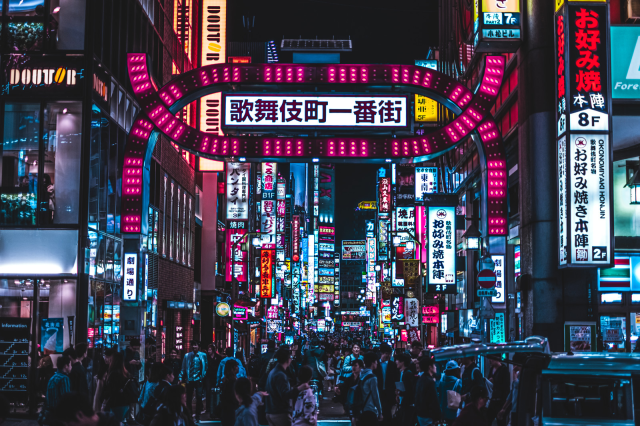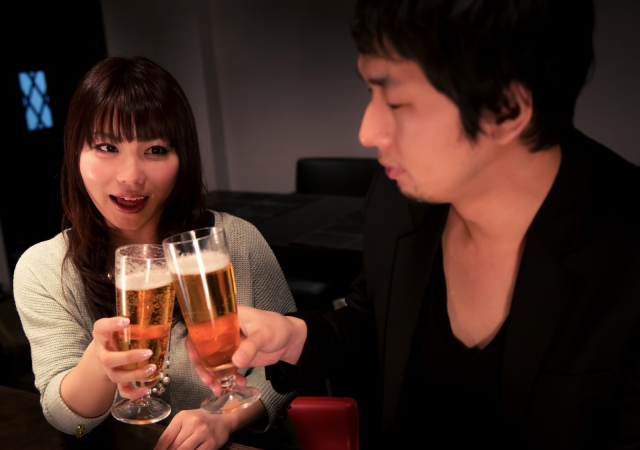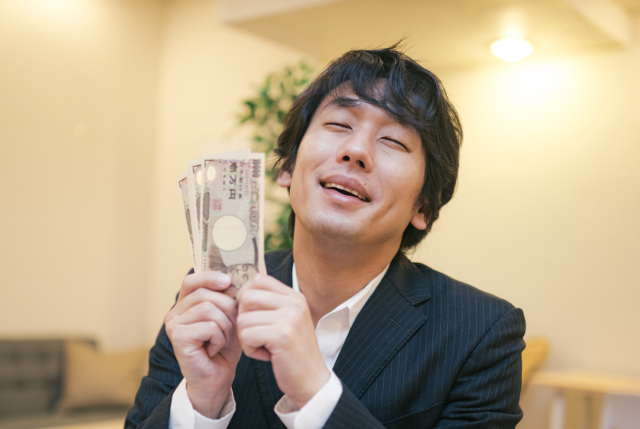
“So is this the start of the Coronavirus Challenge Lottery?” asks opponent of Shinjuku program.
Tokyo has been seeing a resurgence of coronavirus infections since the start of the month, with several days in a row of over 100 new cases and the most recent daily figure, announced on July 9, hitting 224, the highest ever for the capital. With that background, it’s to a mixed response that Tokyo’s Shinjuku Ward has announced a new coronavirus response program.
Under the program, any resident of Shinjuku Ward who is confirmed to be infected with the coronavirus will receive a grant of 100,000 yen (US$935) in “condolence money.” Recipients must have registered as residents of Shinjuku by April 7, one day before a state of emergency was declared in Tokyo due to the pandemic.
Some feel, though, the ward’s generosity is misplaced. Currently, there are 898 confirmed cases of coronavirus infections among Shinjuku residents, more than in any other of the 23 wards and 30 municipalities that make up Tokyo Metropolis. Shinjuku doesn’t have anywhere near the largest number of residents, though, as its total population only ranks 14th out of the 53 wards and cities (according to 2016 statistics).
In other words, Shinjuku has an unusually high rate of infection compared to other parts of Tokyo, and many feel the reason why can be found in the ward’s dense enclaves of hostess bars, host clubs, and other nightlife establishments that cover several city blocks in multiple spots near Shinjuku Station.
With the Japanese legal system not allowing for their forcible closure during the pandemic, all health experts can do is appeal to people’s sense of responsibility and discourage them from spending their night drinking and cozying up to the staff in such bars, but every few days seems to bring another news report of a new coronavirus cluster being traced to a host or hostess club. Because of that, some people in Japan are of the mind that a portion of Shinjuku’s infected contracted the disease through their own fault, and don’t feel that they should be rewarded for it, especially when there are already separate federal government grants providing financial aid to workers whose earnings have taken a hit during the economic downturn and also to students.
Reactions to the Shinjuku program on Twitter have included:
“Please don’t do this. It’s just going to encourage some idiots to get coronavirus on purpose.”
“This seems like a bad idea. I understand some people have to go out, but for those people who chose to go out for fun and got sick, I think they should take responsibility and pay for their own medical expenses.”
“If you receive a grant, then please at least self-isolate at home for the next two weeks.”
“I think it’s admirable to provide support to people, but I’m not 100-percent onboard with this. It’s like if you put forth the effort to social distance and stay home, the response is ‘Oh, um, thanks.’ But if you said ‘The hell with it,’ went out to party, and got infected? Then it’s ‘Oh, you poor thing! Here’s 100,000 yen.’”
“So is this the start of the Coronavirus Challenge Lottery?”
▼ Coronavirus in your body = money in your hands
With Japanese culture and society placing a strong emphasis on the well-being of the group, and thus heavy responsibilities on individual conduct, it’s not surprising that many are frustrated by a program that has the potential to reward people who’ve engaged in dangerously irresponsible, and thus arguably selfish, behavior. At the same time, among Shinjuku’s 898 coronavirus cases there must also be those who did all they could to follow guidelines and became infected anyway, and some of them may be in need of greater financial assistance than what federal grants are providing, especially with the cost of living in Shinjuku being high even by Japanese standards.
In the end, there’s really no easy answer as to what’s to be done, which is likely to make things all the more frustrating for those opposed to the plan if/when the next nightclub-related coronavirus infection occurs.
Sources: NHK News Web via Hachima Kiko, Twitter/@nhk_news, FNN via Hachima Kiko
Top image: Pakutaso
Insert images: Pakutaso (1, 2)
● Want to hear about SoraNews24’s latest articles as soon as they’re published? Follow us on Facebook and Twitter!



 Japanese company tells worker he probably doesn’t have coronavirus, to come to work with a fever
Japanese company tells worker he probably doesn’t have coronavirus, to come to work with a fever Nara University study finds some common teas can neutralize COVID-19
Nara University study finds some common teas can neutralize COVID-19 New coronavirus cases in Tokyo drop to lowest level in almost two weeks
New coronavirus cases in Tokyo drop to lowest level in almost two weeks Could Coronavirus be helping prevent the spread of influenza? Japanese Twitter speculates
Could Coronavirus be helping prevent the spread of influenza? Japanese Twitter speculates Japan considering no-quarantine 72-hour entry starting soon for business travelers
Japan considering no-quarantine 72-hour entry starting soon for business travelers Foreigner’s request for help in Tokyo makes us sad for the state of society
Foreigner’s request for help in Tokyo makes us sad for the state of society Japanese city loses residents’ personal data, which was on paper being transported on a windy day
Japanese city loses residents’ personal data, which was on paper being transported on a windy day Should you add tartar sauce to Japanese curry rice? CoCo Ichi makes diners an unusual offer
Should you add tartar sauce to Japanese curry rice? CoCo Ichi makes diners an unusual offer Seaside scenery, history, and so many desserts on Yokohama’s Akai Kutsu【Japan Loop Buses】
Seaside scenery, history, and so many desserts on Yokohama’s Akai Kutsu【Japan Loop Buses】 Ghibli Park now selling “Grilled Frogs” from food cart in Valley of Witches
Ghibli Park now selling “Grilled Frogs” from food cart in Valley of Witches Harajuku Station’s beautiful old wooden building is set to return, with a new complex around it
Harajuku Station’s beautiful old wooden building is set to return, with a new complex around it Japanese breast size study shows rapid growth in previously smallest-busted region of county
Japanese breast size study shows rapid growth in previously smallest-busted region of county Is Starbucks Japan’s new Gohobi Melon Frappuccino really the ultimate melon Frappuccino?
Is Starbucks Japan’s new Gohobi Melon Frappuccino really the ultimate melon Frappuccino? Historical figures get manga makeovers from artists of Spy x Family, My Hero Academia and more
Historical figures get manga makeovers from artists of Spy x Family, My Hero Academia and more McDonald’s new Happy Meals offer up cute and practical Sanrio lifestyle goods
McDonald’s new Happy Meals offer up cute and practical Sanrio lifestyle goods Japanese ramen restaurants under pressure from new yen banknotes
Japanese ramen restaurants under pressure from new yen banknotes French Fries Bread in Tokyo’s Shibuya becomes a hit on social media
French Fries Bread in Tokyo’s Shibuya becomes a hit on social media Studio Ghibli releases new action figures featuring Nausicaä of the Valley of the Wind characters
Studio Ghibli releases new action figures featuring Nausicaä of the Valley of the Wind characters New private rooms on Tokaido Shinkansen change the way we travel from Tokyo to Kyoto
New private rooms on Tokaido Shinkansen change the way we travel from Tokyo to Kyoto Red light district sushi restaurant in Tokyo shows us just how wrong we were about it
Red light district sushi restaurant in Tokyo shows us just how wrong we were about it Tokyo Tsukiji fish market site to be redeveloped with 50,000-seat stadium, hotel, shopping center
Tokyo Tsukiji fish market site to be redeveloped with 50,000-seat stadium, hotel, shopping center All-you-can-drink Starbucks and amazing views part of Tokyo’s new 170 meter-high sky lounge
All-you-can-drink Starbucks and amazing views part of Tokyo’s new 170 meter-high sky lounge Beautiful Ghibli sealing wax kits let you create accessories and elegant letter decorations【Pics】
Beautiful Ghibli sealing wax kits let you create accessories and elegant letter decorations【Pics】 Studio Ghibli releases Kiki’s Delivery Service chocolate cake pouches in Japan
Studio Ghibli releases Kiki’s Delivery Service chocolate cake pouches in Japan New definition of “Japanese whiskey” goes into effect to prevent fakes from fooling overseas buyers
New definition of “Japanese whiskey” goes into effect to prevent fakes from fooling overseas buyers Our Japanese reporter visits Costco in the U.S., finds super American and very Japanese things
Our Japanese reporter visits Costco in the U.S., finds super American and very Japanese things Studio Ghibli unveils Mother’s Day gift set that captures the love in My Neighbour Totoro
Studio Ghibli unveils Mother’s Day gift set that captures the love in My Neighbour Totoro More foreign tourists than ever before in history visited Japan last month
More foreign tourists than ever before in history visited Japan last month New Pokémon cakes let you eat your way through Pikachu and all the Eevee evolutions
New Pokémon cakes let you eat your way through Pikachu and all the Eevee evolutions Sales of Japan’s most convenient train ticket/shopping payment cards suspended indefinitely
Sales of Japan’s most convenient train ticket/shopping payment cards suspended indefinitely Sold-out Studio Ghibli desktop humidifiers are back so Totoro can help you through the dry season
Sold-out Studio Ghibli desktop humidifiers are back so Totoro can help you through the dry season Japanese government to make first change to romanization spelling rules since the 1950s
Japanese government to make first change to romanization spelling rules since the 1950s Ghibli founders Toshio Suzuki and Hayao Miyazaki contribute to Japanese whisky Totoro label design
Ghibli founders Toshio Suzuki and Hayao Miyazaki contribute to Japanese whisky Totoro label design Doraemon found buried at sea as scene from 1993 anime becomes real life【Photos】
Doraemon found buried at sea as scene from 1993 anime becomes real life【Photos】 Tokyo’s most famous Starbucks is closed
Tokyo’s most famous Starbucks is closed One Piece characters’ nationalities revealed, but fans have mixed opinions
One Piece characters’ nationalities revealed, but fans have mixed opinions We asked a Uniqlo employee what four things we should buy and their suggestions didn’t disappoint
We asked a Uniqlo employee what four things we should buy and their suggestions didn’t disappoint Princesses, fruits, and blacksmiths: Study reveals the 30 most unusual family names in Japan
Princesses, fruits, and blacksmiths: Study reveals the 30 most unusual family names in Japan Tokyo’s Shinjuku Ward enlists the help of internet cat characters to remind us to wear masks
Tokyo’s Shinjuku Ward enlists the help of internet cat characters to remind us to wear masks Japan officially declared coronavirus-infected nation by Micronesia, travel restrictions enacted
Japan officially declared coronavirus-infected nation by Micronesia, travel restrictions enacted Tokyo government to give smartphones to senior citizens, pay for their calling and data plans
Tokyo government to give smartphones to senior citizens, pay for their calling and data plans Tokyo Olympics will not allow spectators from overseas
Tokyo Olympics will not allow spectators from overseas Coronavirus vaccinations for general public in Japan to start in mid-July at the earliest
Coronavirus vaccinations for general public in Japan to start in mid-July at the earliest U.S. government lowers Japan travel warning level
U.S. government lowers Japan travel warning level Tokyo’s number-one Halloween party spot asks people to stay away this year
Tokyo’s number-one Halloween party spot asks people to stay away this year Chinese people hand out free surgical masks in Japan as coronavirus outbreak continues【Video】
Chinese people hand out free surgical masks in Japan as coronavirus outbreak continues【Video】 Politician’s disgusting mask gaffe grosses out Japan【Video】
Politician’s disgusting mask gaffe grosses out Japan【Video】 Japan increases entry limits, offers extra financial aid for foreign students
Japan increases entry limits, offers extra financial aid for foreign students Tokyo’s latest plan to boost birth rate: Pay people 100,000 yen per baby they give birth to
Tokyo’s latest plan to boost birth rate: Pay people 100,000 yen per baby they give birth to Japan considering doubling entry cap for overseas travelers, waiving on-arrival PCR tests soon
Japan considering doubling entry cap for overseas travelers, waiving on-arrival PCR tests soon Tokyo starts massive renovation project for entrances to the world’s busiest train station
Tokyo starts massive renovation project for entrances to the world’s busiest train station Did you know Tokyoites get discounts on certain hotels? We list them up
Did you know Tokyoites get discounts on certain hotels? We list them up Japanese prime minister accidentally asked about government’s massive “Robbery Campaign” budget
Japanese prime minister accidentally asked about government’s massive “Robbery Campaign” budget
Leave a Reply